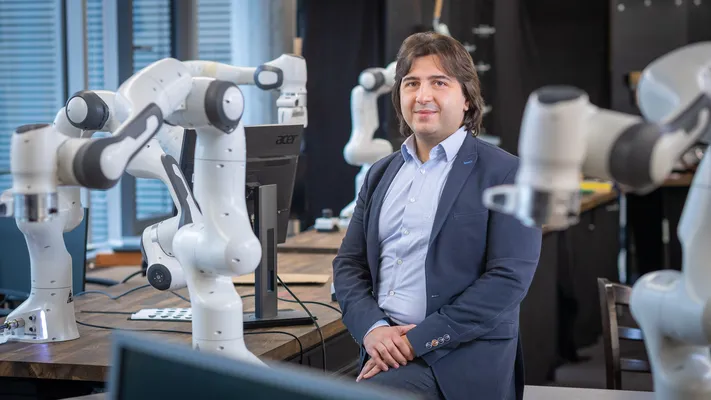Research News from the Chair of AI Processor Design
Press Release from the Technical University of Munich (TUM)
The research group led by Prof. Amrouch at the Technical University of Munich (TUM) has developed a powerful in-memory computing approach that can significantly accelerate deep learning applications. This novel approach introduces a new computational paradigm utilizing an emerging technology known as Ferroelectric Field-Effect Transistors (FeFETs). FeFETs are a type of non-volatile memory that can improve the efficiency and speed of data processing. The full TUM press release, including more detailed information on this breakthrough, is available online in both English and German.

New Research Article Published at Nature Communications
Our latest research, just published in Nature Communications, unveils the groundbreaking potential of 28nm ferroelectric technology (FeFET) in realizing multi-bit multiply-accumulate operations —the cornerstone of AI algorithms. Our brain-inspired computing architecture promises significant efficiency boosts in deep learning. It is not just about bringing AI chips into every facet of our daily lives, but also about drastically reducing the carbon footprint of AI. A mission we're deeply committed to at the AI Processor Design Chair. The research is a result of joint efforts with Bosch, Fraunhofer IPMS, and Indian Institute of Technology, Kanpur.
"First Demonstration of In-Memory Computing Crossbar using Multi-Level Cell FeFET", T. Soliman, S. Chatterjee, N. Laleni, F. Müller, T. Kirchner, N. Wehn, T. Kämpfe, Y. S. Chauhan and Hussam Amrouch.
The full article is publicly available in Nature Communications
New Research Paper Published at the IEEE International Electron Devices Meeting (IEDM'23)
The IEEE International Electron Devices Meeting (IEDM) is a highly respected annual conference that focuses on breakthrough in semiconductor devices and emerging technologyies. Professionals, researchers, and academics from various industries and institutions who are involved in the development of future technology present their latest innovations and developments in such field. IEDM is highly competitive and has a low acceptance ratio.
Our latest research work has been published at IEDM 2023, and we are proud to have had papers accepted at this prestigious conference for three consecutive years (IEDM 2021, IEDM 2022, IEDM 2023).
Our work focuses on demonstrating how emerging FeFET technology can be employed to build future 3D chips that use monolithic integration to realize brain-inspired architectures. It highlights the profound challenges due to temperature effects in such future chips and proposes a novel technique to eliminate temperature-induced errors.
S. Chatterjee1, S. Kumar, A. Sunil, S. De, D. Lehninger, M. Jank, T. Kämpfe, Y. S. Chauhan, and H. Amrouch, “Defying Temperature: Reliable Compute-in-Memory in Monolithic 3D using BEOL Ferroelectric TFT,” in 69th Annual IEEE International Electron Devices Meeting (IEDM), December, 2023.